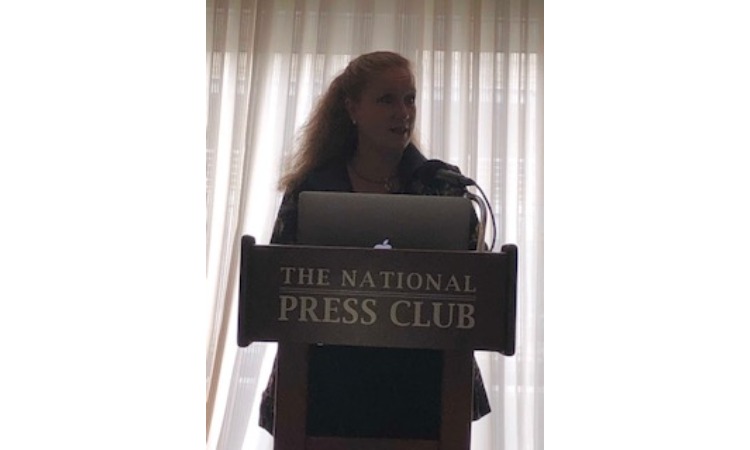June 3, 2019 – In the wake of Dr. Scott Gottlieb’s recent departure from the FDA and the appointment of Acting FDA Commissioner Dr. Ned Sharpless, industry can expect Sharpless to continue many of the initiatives and action plans established by Gottlieb, who was one of the most activist FDA commissioners in FDA history, according to Nancy Bradish Myers, president, Catalyst Healthcare Consulting. However, with only 17 months until the next presidential election, Sharpless may face some limitations in his acting commissioner capacity, Myers told attendees of the May 21-22 Coalition for Healthcare Communication Rising Leaders Conference on Healthcare Policy, held in Washington, D.C.
The upcoming 2020 elections and a “somewhat contentious” political environment may play a role in how effective Sharpless can be, Myers explained. “The FDA is a very scientific organization,” she said, but “there are ways that politics play into it. Even the decision whether or not to appoint a permanent commissioner until after the election – that can have an impact on an agency like FDA,” she said.
Sharpless can try to set some priorities, she continued, but the Trump administration will have to decide “whether to use the political energy and chits to get the Senate to confirm Sharpless as commissioner, so that has its implications,” she said.
So where does Sharpless go from here? According to Myers, Sharpless likely is “going to be very careful about maintaining the administration’s support. He is saying the right stuff, but we need to remember that he’s acting [commissioner]. What ‘acting’ means at the FDA tends to be that you are a caretaker. It’s very hard to go out and start new initiatives and really feel like everyone is behind you.”
Based on what Sharpless has said thus far, Myers defines Sharpless’ priorities as:
- Working to maintain administration support;
- Driving existing action plans, which include a focus on innovation, efficacy, and safety (including expedited pathways, improving efficiency of new product reviews, new guidance for the development of gene and cell therapies and continued implementation of the Biosimilars Action Plan); and
- Listening to internal experts at the FDA.
Before being appointed acting commissioner, Sharpless was the director of the National Cancer Institute. Suggesting topics he considers important, his areas of interest at the NCI were:
- Modernizing clinical trials;
- Using big data (including a move away from passive data aggregation, attempts to link complex data sets, and finding a way to better understand cancer and generate real-world evidence);
- Recognizing the importance of biomarkers; and
- Reducing smoking rates and youth vaping.
One thing is certain, Myers stated: Sharpless has big shoes to fill. In Gottlieb’s nearly two years as FDA commissioner, he left his mark on the FDA. “What did we like about Gottlieb as commissioner? We loved him and his numbers,” Myers said, tallying up his average of 14 tweets per day, the high number of novel drug approvals (59 in 2018 – the highest in a 10-year period), the percentage of novel drugs approved (95 percent in 2018), and the 414 guidance documents issued during his tenure.
“He put in place efforts that would streamline guidance development, like using bullet points … and putting out guidance on things that hadn’t totally finished baking, in that you could put out guidance about ‘this is where we are now at the FDA’ rather than ‘this is the perfect position that we are going to reach in the next couple of years,’” Myers explained.
But even more important than these numbers, Myers said, are the relationships that Gottlieb built with Congress, the Trump administration, industry and within the FDA. “He already had strong relationships with both members of Congress and their staff – so he could get into the policy weeds on his own and staffers felt that they could pick up the phone and call him anytime.” That approach helps the FDA, she said, because things run more smoothly with open lines of communication.
Bottom line, Gottlieb “drove policy that facilitated innovation,” she stated. “This is not just what Scott did; this is what Scott allowed to happen. FDA is a small but mighty agency and all of this work is not done at the commissioner level … he allowed people in authority at FDA to do their jobs.”
Further, “he really had a respect for the senior people at the agency and that’s key, because the people who know what’s going on and how the drugs are being approved and how devices are being approved – those are the Center directors and their direct reports,” she pointed out. “Sometimes you can see a bifurcation where the commissioner’s office is in one place and the people who are in the Centers are in a different place, but [Gottlieb] realized that he had to have direct communication with all of the Center directors.”
As Sharpless tries to continue that good work, he may fly largely under the radar as an acting commissioner. But that all could change, Myers suggested. With a background of discord in Congress, the FDA is “always a hair breadth away from an outbreak of flu, Ebola coming to the U.S., a food outbreak – all of these things can pull FDA into a negative spotlight,” she said. “Things could go south very quickly.”




